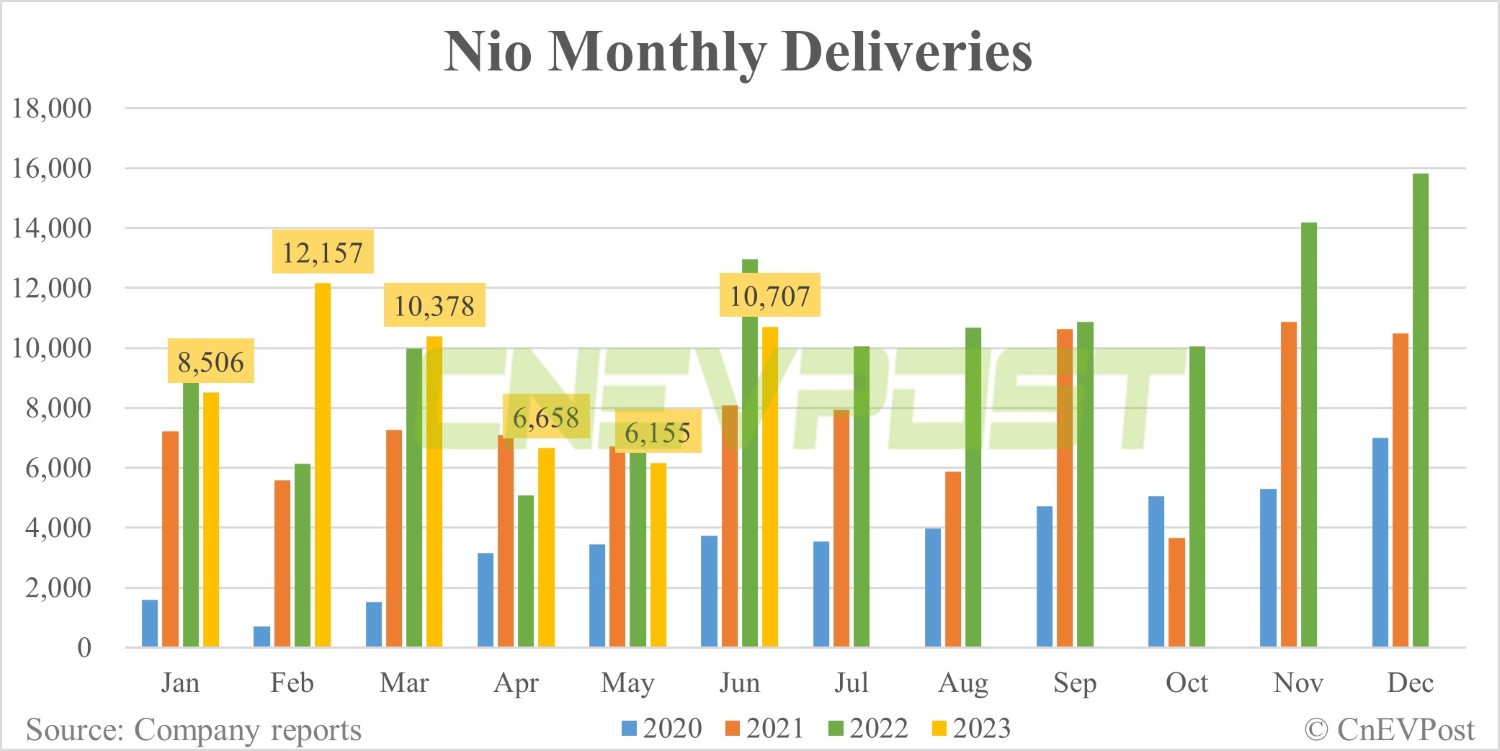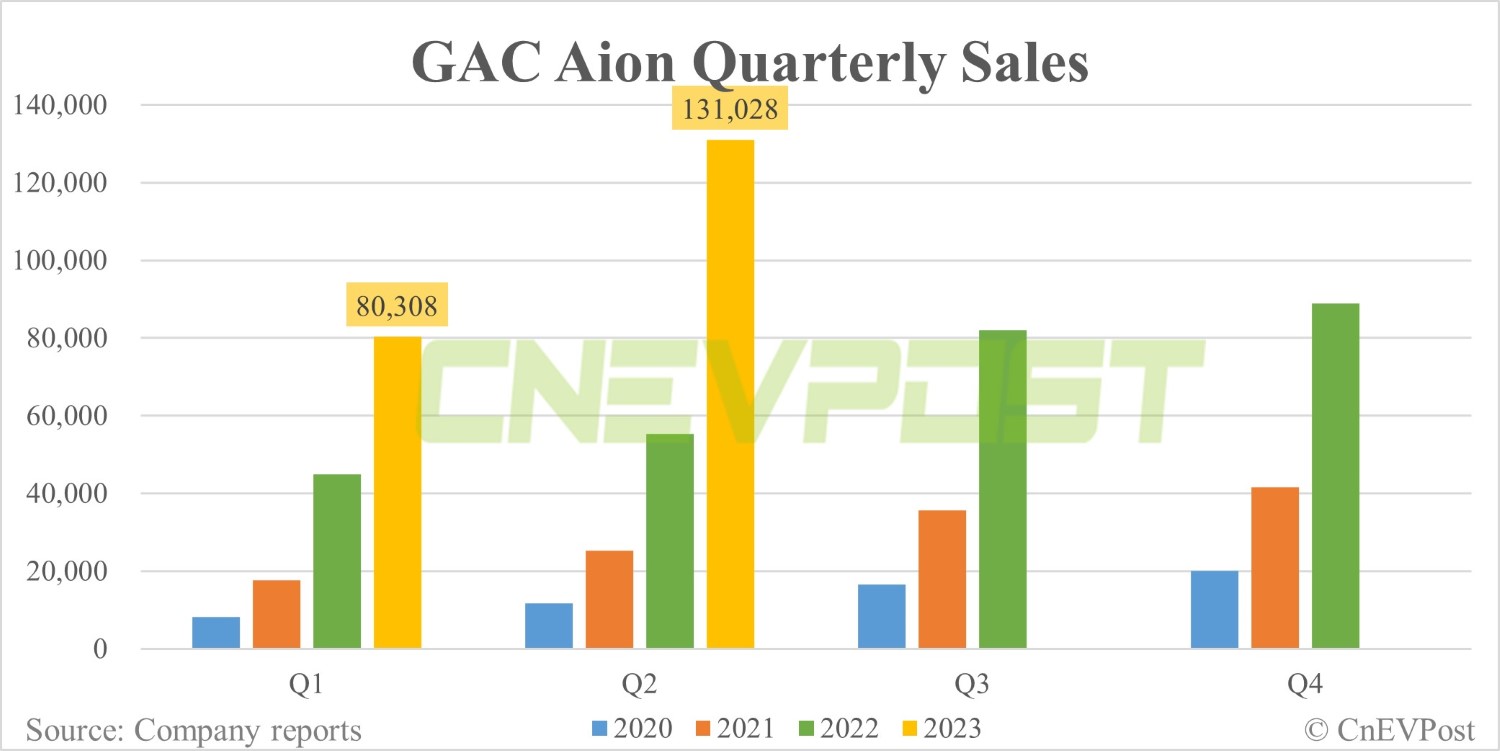Nio's sales of 4,100 units last week are second only to Li Auto in the table.

Li Auto (NASDAQ: LI) shares last week's sales of major new car makers in China, showing how it and its major peers fared.
For the week of June 26 to July 2, Li Auto sold 6,500 units, continuing to top the sales chart for China's new car-making brands, the company said today on Weibo.
Li Auto did not explain on what basis the weekly sales were measured, but apparently they were insurance registrations. The company had suspended sharing those numbers in May, but has since resumed sharing them.
In June, Li Auto exceeded 30,000 monthly deliveries for the first time, making it the fifth luxury brand to exceed 30,000 monthly deliveries after Mercedes-Benz, BMW, Audi and Tesla, and the only Chinese luxury brand among them, it said.
In July, Li Auto will challenge higher sales targets to become the luxury car brand of choice for more families, the company said.
Li Auto released data on July 1 showing it delivered a record 32,575 vehicles in June, the first time it has surpassed the 30,000 mark.
In the second quarter, Li Auto delivered 86,533 vehicles, up 201.65 percent year-on-year and up 64.56 percent from the first quarter, exceeding the upper end of its previously provided guidance range of 76,000 to 81,000 vehicles.
In the first half of the year, Li Auto delivered 139,117 vehicles, up 130.31 percent year-on-year, surpassing last year's full-year deliveries of 133,246.
Nio (NYSE: NIO) sold 4,100 units last week, second only to Li Auto among China's new car-making brands.
Nio delivered 10,707 vehicles in June, up 73.96 percent from 6,155 in May, although down 17.39 percent from 12,961 in the same month last year.
The deliveries included 6,383 SUVs, and 4,324 sedans, Nio said on July 1, without disclosing figures for specific models.
In the second quarter, Nio delivered 23,520 vehicles, down 6.14 percent from a year ago and down 24.23 percent from the first quarter. The deliveries were slightly above the lower end of the guidance range it provided on June 9 of 23,000 to 25,000 vehicles.
In the first half of the year, Nio delivered 54,561 vehicles, an increase of 7.35 percent year-on-year.
Nio's delivery rebound in June was helped by the start of deliveries of several new models, especially the new ES6.
The company launched the new ES6, based on the NT 2.0 platform, in China on May 24, with deliveries starting on launch night.
On June 15, Nio launched the ET5 Touring in China, with deliveries starting on June 16.
On June 28, Nio began deliveries in China for the new ES8, the flagship SUV launched on Nio Day 2022 on December 24, 2022.
Tesla (NASDAQ: TSLA) sold 17,400 units last week, ranking fourth among premium brands, according to the table shared by Li Auto.

The top-selling premium brands in China last week continued to be German luxury brands BMW, Audi and Mercedes-Benz, with 20,800, 20,500 and 19,600 respectively.
Li Auto was No. 6 in premium brand sales, behind Cadillac. Nio was No. 9, behind Volvo and Lexus.
Leapmotor was at 3,400 last week, Neta at 3,200, Zeekr at 3,100 and Xpeng (NYSE: XPEV) at 2,700.
The post China NEV insurance registrations for week ending Jul 2: Tesla 17,400, Li Auto 6,500, Nio 4,100 appeared first on CnEVPost.
For more articles, please visit CnEVPost.












